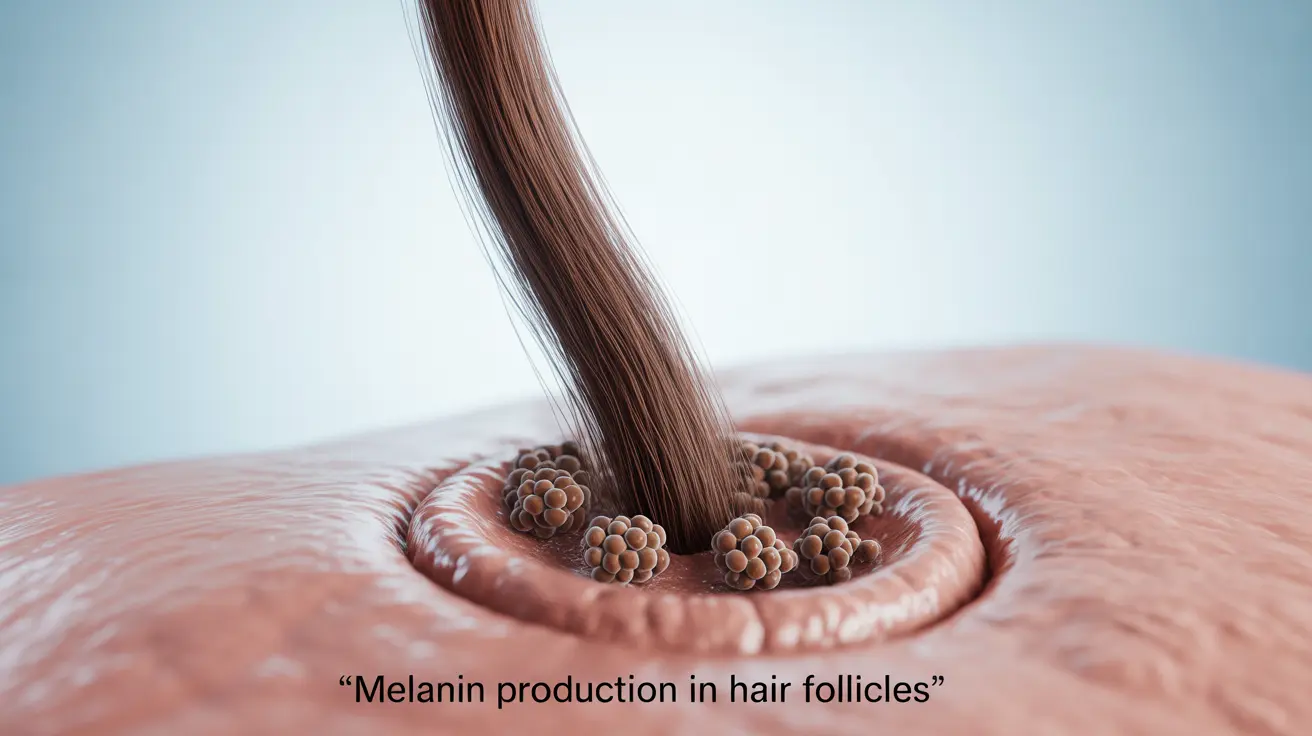Many people wonder about the relationship between genetics and gray hair, especially when they spot their first silver strands. While the connection between our genes and graying hair is significant, it's part of a complex interplay of factors that determine when and how our hair loses its natural color.
Understanding the science behind gray hair can help us better manage our expectations and potentially take steps to maintain our natural hair color longer. Let's explore the genetic factors and other influences that contribute to the graying process.
The Role of Genetics in Hair Graying
Genetics plays a fundamental role in determining when we start to see gray hair appear. Research shows that the age at which we begin to gray is largely inherited, with some people experiencing premature graying as early as their teens or twenties due to their genetic makeup.
Scientists have identified specific genes that control the production and storage of melanin, the pigment that gives hair its color. Variations in these genes can affect both the timing and pattern of gray hair development.
Family History and Graying Patterns
If you're curious about when you might start graying, looking at your family tree can provide valuable insights. Studies suggest that the paternal side of your family may be particularly influential in predicting your graying timeline. However, both parents' genetic contributions play a role in this natural aging process.
Beyond Genetics: Other Factors Affecting Gray Hair
Nutritional Influences
While genetics sets the foundation, nutritional factors can significantly impact the graying process. Key nutrients that affect hair pigmentation include:
- Vitamin B12
- Copper
- Iron
- Vitamin D
- Folate
Deficiencies in these essential nutrients can accelerate the graying process, even in people who might otherwise gray later in life due to their genetic makeup.
Environmental and Lifestyle Factors
Several external factors can influence how early and quickly hair turns gray:
- Chronic stress
- Smoking
- UV exposure
- Environmental pollutants
- Oxidative stress
These factors can affect melanin production and potentially speed up the natural graying process, regardless of genetic predisposition.
The Biology of Graying Hair
The process of hair graying involves complex cellular mechanisms. Melanocytes, the cells responsible for producing melanin, gradually become less active and eventually stop functioning altogether. This natural process occurs in the hair follicle, where each strand of hair grows.
Understanding this biological process helps explain why some preventive measures may help maintain natural hair color longer, while others have little effect on the fundamental genetic programming of our hair follicles.
Frequently Asked Questions
Is gray hair primarily caused by genetics or can lifestyle factors like stress and smoking also lead to premature graying?
While genetics is the primary determining factor for when hair turns gray, lifestyle factors like chronic stress and smoking can accelerate the process. These environmental influences can trigger oxidative stress in the body, potentially leading to earlier graying than your genes might otherwise dictate.
How does a family history, especially from the paternal side, influence the likelihood of getting gray hair early?
Family history, particularly from the paternal side, can be a strong indicator of when you might start graying. If your father or paternal grandfather experienced early graying, you may have a higher likelihood of following a similar pattern, though maternal genes also play a role.
Can nutritional deficiencies in vitamins such as B12, copper, or iron cause premature gray hair, and how can diet help prevent it?
Yes, nutritional deficiencies, especially in B12, copper, and iron, can contribute to premature graying. Maintaining a balanced diet rich in these nutrients may help delay the onset of gray hair in individuals who are not genetically programmed to gray very early.
What biological processes cause hair to turn gray, and is it possible to reverse or prevent graying naturally?
Hair turns gray when melanocytes in the hair follicle stop producing melanin. While this process cannot be reversed once it starts, maintaining good nutrition and avoiding environmental stressors may help slow the progression in some cases.
How do stress and environmental exposures affect melanin production and contribute to premature gray hair?
Stress and environmental factors can impact melanin production by creating oxidative stress in the body, which can damage melanocytes. This damage can lead to decreased melanin production and accelerate the graying process, particularly in individuals who may already be genetically predisposed to early graying.




